Today’s throwback essay is about my father, his dementia, and my fear of nursing homes at Christmas time. It’s also about love between families and strangers alike.
“I’ve spent many hours in Al-Anon meetings and therapy sessions to help me process and clarify who my father was as a person. As close as we were at several points in my adult life, it also became impossible to overlook the other, more abusive side of him, especially when I was very young. But I have dedicated myself to the internal work of forgiveness, loosening the resentments I carried for far too long. I finally crossed over to the he-did-the-best-he-could side of the aisle, but it was too late for us to reconcile. How could we reconcile when he didn’t remember me?”
This was also the last moment I had with my father before he died.
If you want to support what we do, please consider upgrading to paid.
Also, we make a great gift.
I Love You Infinity
by A.J. Daulerio
Originally published December 13, 2022
When I was 11, my grandmother was placed in a nursing home because no one could care for her anymore. She was a lifetime smoker, which led to emphysema, oxygen ventilators, and, eventually, her death. But the last year of her life was spent in a facility. I vividly remember her begging my father not to put her there. “Please, just let me go home!” But he and my grandfather sent her there anyway because they thought that’s where she needed to be.
I had no concept of what kind of people lived in a nursing home or how bleak it was, but after my first visit, I realized it was not a home but more like a sub-par hospital or possibly a prison. Within five minutes of entering, I understood why my grandmother was so afraid of it. People were so ravaged. The ones who weren’t in wheelchairs were asleep on small couches with their eyes closed shut and mouths wide open, wide enough to be either a yawn or a scream. They were all waiting for someone to visit them or take them back home—their actual home with their furniture and walls with paint colors they’d picked out themselves.
When we first arrived, a woman, pushing herself around in a wheelchair with her feet, locked in on me. I stared at the floor, but when I looked up, she was reaching out to me, witch-like. “Little boy! Oh, little boy! Please come here.” All the blood left my body, and I hid behind my father’s legs. On the ride home, I asked my father not to take me there anymore.
My grandmother died soon after that visit. It happened in the middle of the night while we were out of town visiting my aunt. We drove all through the night in a snowstorm from Rhode Island back to Philadelphia so my dad could be there for his father, who was drowning in sadness and guilt.
******
I took a red-eye flight to Florida last week to visit my father in his new memory care facility near a tiny part of Palm Beach County called Tequesta. About a year ago, his dementia had reached the stage where it was clear that my mother was unable to provide the round-the-clock caretaking he needed. My mother finally found him a place that could provide that for him, but she would not be joining him there.
It had been a chaotic year, and the stress was suffocating, especially for my mother, but I still, perhaps selfishly, resented her for sending him here.
I’ve spent many hours in Al-Anon meetings and therapy sessions to help me process and clarify who my father was as a person. As close as we were at several points in my adult life, it also became impossible to overlook the other, more abusive side of him, especially when I was very young. But I have dedicated myself to the internal work of forgiveness, loosening the resentments I carried for far too long. I finally crossed over to the he-did-the-best-he-could side of the aisle, but it was too late for us to reconcile. How could we reconcile when he didn’t remember me?
*****
The memory care facility was shockingly white-colored and clean. There was a tastefully ornamented, real-live Douglas fir at the front desk. The woman at the reception area warmly greeted my mother as she scanned us in.
We met him in one of the common areas where all the residents congregate, most of whom were in wheelchairs. A man sat on a stool on a mini stage singing Christmas carols from a feedback-filled karaoke machine. There were nursing aids in each corner of the room. They were mostly very young and never looked up from their phones. My father sat in the back on a cushioned chair and held on to the handlebars of his walker. He looked much older since I last saw him a few months ago.
His expression was vacant, but his eyes were bright. I couldn’t tell if he was following along with the song or patiently waiting to be moved. I walked up, grabbed his wrist, and leaned down to shake his hand. He didn’t recognize me. He could sense that I was not a threat, though. He smiled.
My mother made the introductions. “Do you know who this is?”
“Yeah!” he said. “You’re a good guy!”
When I visited him in August with my sister, he didn’t address me by my first name either. I was mostly a “good guy” then, too. But he was real ornery the two days I saw him. He spoke in an endless loop of a few select phrases, several that included the word fuck, as he whiplashed in and out of reality. He never comprehended that his only children had traveled a long way to spend a day with him. Each time he returned from the bathroom, he'd greet us again. He’d focus on my sister, and his eyes would light up. “You're pretty!" Then he'd look me over, trying to remember if I was her husband or his son. “You're a good guy!” This same interaction happened at least a dozen times.
I patted his hand, touched his head, and tried again to jog his memory and help him remember me, but it wasn’t working, and he wasn’t interested.
But he was delighted to see my mother. “You’re so beautiful! I love you so much!”
He must have said “I love you” a dozen times throughout the 90-minute visit. And each time he said, “I love you!” she’d say, “I love you more!” Then he’d go, “I love you most!” and she’d say, “I love you infinity!”
My mother and I used to do this goodnight routine with each other when I was a little kid as she tucked me into bed. She’s tried to do it with my kids, but they haven’t caught on. When none of them follow up with “I love you infinity!” I can see the hurt freckle across her face. But my father can’t say it enough today.
This is such a drastic shift from their last few months living together. My mother was drained of most of her life force, counting out his dozen pills twice daily, attempting to bathe him without getting punched or making sure he hadn’t urinated on himself before they made their way down to the dining area. She couldn’t take care of him anymore, and the situation became extremely dangerous. (The police were called once or twice.)
A couple of the aids at the facility smile at my dad’s excitement. “Oh, I love you, you so, so much beyond infinity!” as he inched closer to hold her hand. “You’re such a pretty lady.”
Even though my mother knows this child-like adoration is just as much a part of the disease as it was when they were still living together. He would physically attack her or call her “a fucking bitch” when she wouldn’t get him a glass of water quickly enough, but she still blushed.
*****
For most of my life, I have not been good with physical affection. Julieanne’s biggest complaint about me is that I am a bad hugger, especially if she asks for one. “Can you just hug me or something?” Sometimes, I’ll stare at her blankly or roll my eyes. Sometimes, I’ll reluctantly throw my arms around her and quickly pat her back, signaling I am through with the hugging. She says I’m a good listener but very bad at the physical connection part.
This all came up in our couple’s counseling recently. When she mentioned it, I felt the familiar flush of shame and embarrassment, usually followed by quiet fury. But I did not do that this time—as much as I wanted to deny her claims and rattle off a list of times I’d provided adequate physical comfort for her in the past couple of years, I realized I’d only prove her point.
Our therapist casually mentioned that an inability to show physical affection could be from some past trauma. He was generalizing, but in my case, I believe that’s correct. My history of being badly touched or fondled when I was young is so hazy it’s practically irretrievable. Still, for almost 40 years, I have felt its shadow across my body, causing me to not only withhold some forms of physical affection but to, on some occasions, recoil and pull away. The when or why it happened no longer matters—I now accept it as a shattered part of me.
At the next day’s visit, my aunt and her husband came along. My aunt has watched and worried about the deterioration of my father’s brain and my mother’s sanity, so she’s happy that everyone’s finally safe. But she pulled me aside to tell me she had a few upsetting interactions with other residents. “Every time I leave here, I have to get a drink right after.”
We all headed into the common area, where my dad and half the facility sat through yet another batch of Christmas carols sung by a different old man playing a small keyboard. It was more joyful and raucous than the day before, with everyone singing and clapping their way through “Jingle Bells.”
A woman in a wheelchair pulled on my arm and brought me in inches from her face. She was trembling and tearful. “I love you!” she said. I did not pull away. I leaned down and looked straight at her, almost into her. “I love you, too!” I touched her arm, and she practically floated away. “You know me!” she said. “Of course I do. I met you yesterday.”
She tried to pull me in even closer, but an aid finally got between us. “Now, come on, Harriet. Let’s let this man spend time with his family.”
Harriet didn’t take her eyes off me. “But I want to keep him for me!” Her face wilted. I promised her I’d see her later and hugged her goodbye.
I don’t know why I didn’t recoil or avoid contact with Harriet, but I knew, at that moment, it was my job to show love to a stranger who maybe felt left behind.
We grabbed my dad and began to make the slow, shuffling walk back to his room so he could pee. He was so excited by the company. Then he stopped walking and looked at me. “There’s A.J.!” he said. His eyes lit up. “Heyyyy!” I said back and put a hand on his walker. Then his eyes dimmed, and I was a stranger once again. “You’re a good guy.”
****
While he was in the bathroom, another resident at the opposite end of the long hallway strolled towards us. She wore an oversized blue floor-length skirt and clunky brown orthopedic shoes. She spread her arms out wide, making it appear like she was about to soar up out of there or get her wingspan measured before the NBA draft combine. Her slow pace gave the whole sequence a real It Follows-vibe. But, once again, I didn’t run away.
My father exited the bathroom, and we all made our way to a large cushioned bench at the end of the hall. We got him there, and as I sat him down, I felt two hands tug me. As I expected, it was the soaring woman. She gently pulled me away from my family and interlocked her fingers with mine. We began our slow walk down the hallway, hand in hand, two high school sweethearts headed to a spring formal.
One of the aids walked behind me. “This is Mickey. You probably look like someone she knew long ago.” She tried to separate us, but Mickey yanked my hand back and motioned for the aid to scram. “Well, you’re not getting away from her. Sorry!”
The aid finally broke us apart before we could complete our slow-motion escape out the door onto some golden stretch of Florida highway built just for us. “Come on, Mickey. Let him go.” She was taken back through a set of swinging doors. I waved goodbye, but she didn’t turn around.
*****
When I returned, my father was settled on the bench. My mother sat to his right, and my aunt to the left. He was beaming. “All these pretty ladies!” Since his spirits were high, I tried to take a video of him saying hi to my kids, but forcing him to concentrate and pronounce their names correctly overwhelmed him. We went through several takes, but he didn’t understand.
My mother asked me if any of my children had blue eyes. “Ozzy has green eyes. The other two have brown eyes.” I said. My father perked up. “What color eyes do I have?” Then it came back to him. “I got a couple. Half blue and…half brown.”
I have it, too. It’s a form of heterochromia that comes from his side of the family. His mother had it—one brown eye with sideways stripes of blue and green. His eyes are predominantly brown, with light blue flecks. Mine are slightly more pronounced—one eye is very blue with a brown pie piece, and the other is light brown with a blue stripe. I have been told I look like a Siberian husky when the sunlight hits them.
“We’re the good ones,” my father said. I leaned in to show him my eyes, and then he took off his glasses to lean in and show me his. We both began to laugh as we almost bonked our faces. He turned to my mother, almost tipping over with joy. “This is so much fun!”
He put his glasses back on and adjusted them. Then he turned to me, and his expression changed once again. Another flash hit him. He held up his hand as if we’d just stumbled upon each other walking down a strange, empty road. His voice became softer and slower, the full lethargy of dementia on display. “My son…this is my son. You’re my son. You beautiful man. My son.” There was a pause, and then, he cleared his throat. “I love you.” His voice sounded young and unsure. I told him I loved him, too. It spilled out of me so quickly. Where has this place been all my life?
*****
Here’s the video I took. I’m not trying to exploit this moment, but I’ve written enough about my complicated history with my father and his dementia, so I think maybe this is the best way for you all to meet him finally. It’ll be one of the first memories I’ll reach for when I think of him.
The world is hard. Pass along TSB as a gift this year and let’s do our part to change that.
ZOOM MEETING SCHEDULE
Monday: 5:30 p.m. PT/8:30 ET
Wednesday: 10 a.m. PT/1 p.m. ET
Thursday: 10 a.m. PT/1 p.m. ET (Women and non-binary meeting.)
Friday: 10 a.m. PT/1 p.m. ET
Saturday: Mental Health Focus (Peer support for bipolar/anxiety/depression) 9:30 a.m. PT/12:30 p.m. ET
Sunday: (Mental Health and Sobriety Support Group.) 1:00 p.m PT/4 p.m. ET
*****
If you don't feel comfortable calling yourself an "alcoholic," that's fine. If you have issues with sex, food, drugs, codependency, love, loneliness, and/or depression, come on in. Newcomers are especially welcome.
FORMAT: CROSSTALK, TOPIC MEETING
We're there for an hour, sometimes more. We'd love to have you.
Meeting ID: 874 2568 6609
PASSWORD TO ZOOM: nickfoles
Need more info?: ajd@thesmallbow.com
This is The Small Bow newsletter. It is mainly written and edited by A.J. Daulerio. And Edith Zimmerman always illustrates it. We send it out every Tuesday and Friday.
You can also get a Sunday issue for $8 a month or $60 annually. The Sunday issue is a recovery bonanza full of gratitude lists, a study guide to my daily recovery routines, a poem I like, the TSB Spotify playlist, and more exclusive essays. You also get commenting privileges!
Other ways you can help:
BUY A SANTA PILL MUG
TSB merch is a good thing. [STORE]
or you can
or you can give a
that goes toward the production of the podcast.
Everything helps.
A POEM ON THE WAY OUT:
Affirmation
by Donald Hall
*********
To grow old is to lose everything.
Aging, everybody knows it.
Even when we are young,
we glimpse it sometimes, and nod our heads
when a grandfather dies.
Then we row for years on the midsummer
pond, ignorant and content. But a marriage,
that began without harm, scatters
into debris on the shore,
and a friend from school drops
cold on a rocky strand.
If a new love carries us
past middle age, our wife will die
at her strongest and most beautiful.
New women come and go. All go.
The pretty lover who announces
that she is temporary
is temporary. The bold woman,
middle-aged against our old age,
sinks under an anxiety she cannot withstand.
Another friend of decades estranges himself
in words that pollute thirty years.
Let us stifle under mud at the pond's edge
and affirm that it is fitting
and delicious to lose everything.
— “From White Apples and the Taste of Stone”


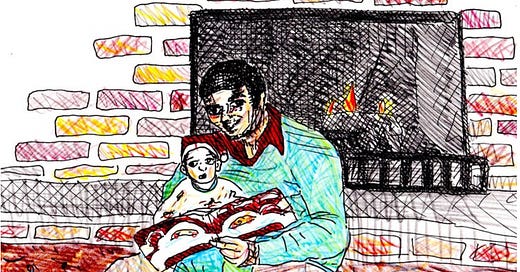



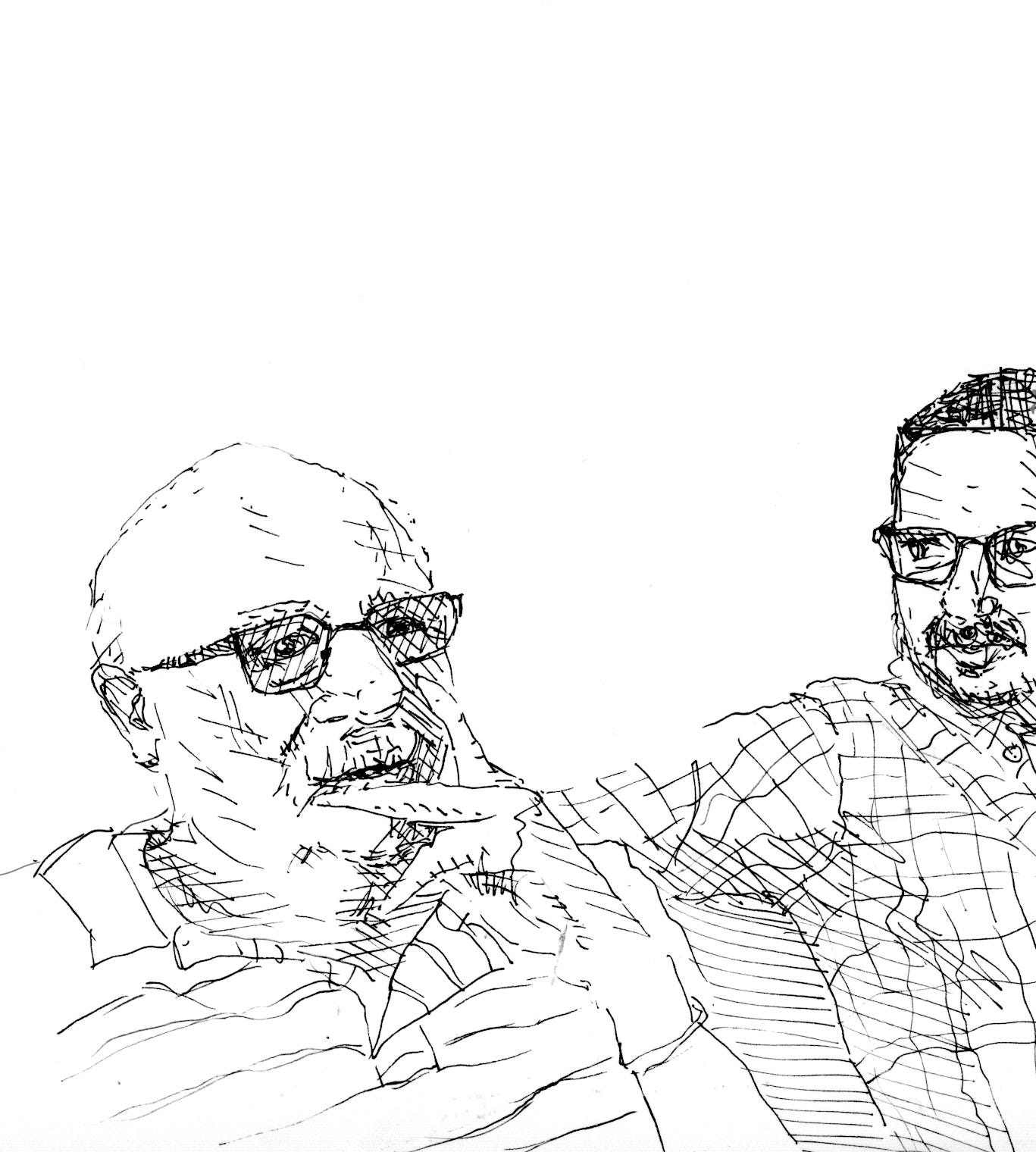
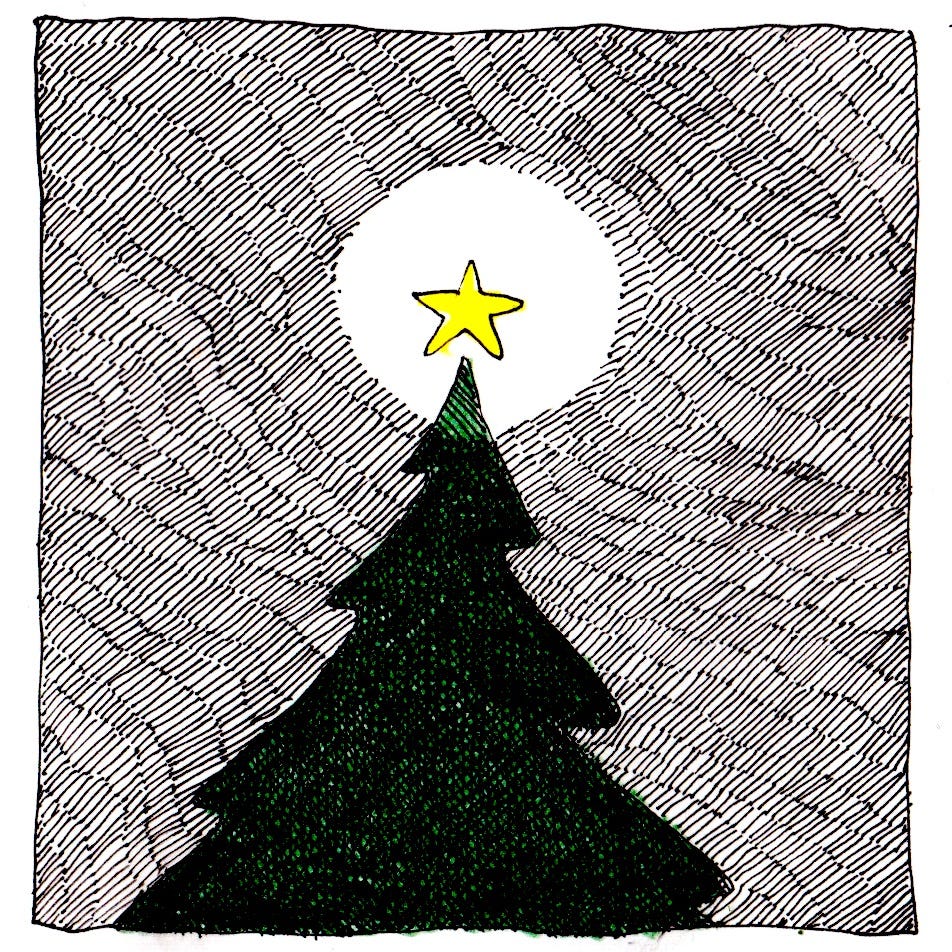
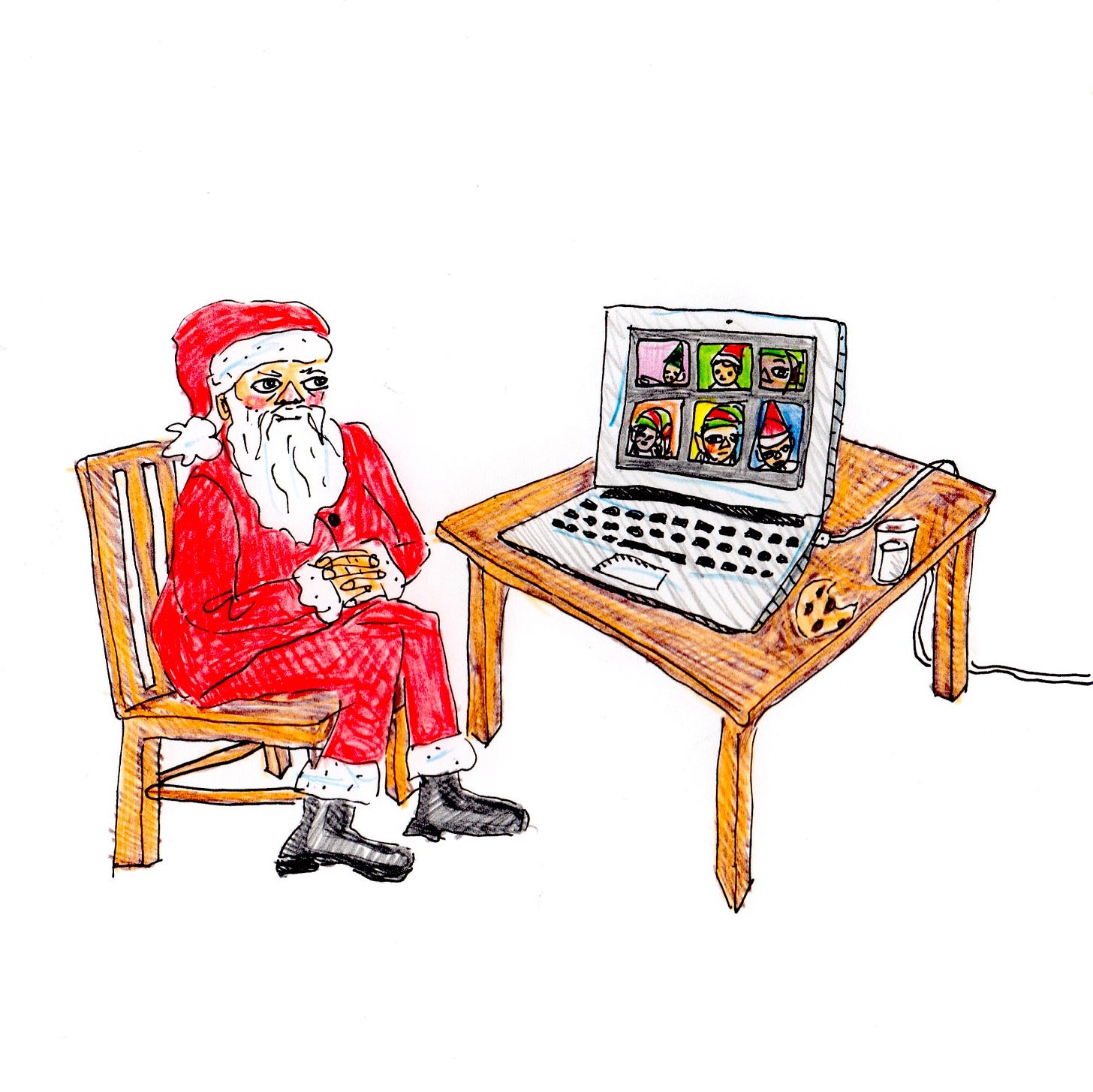
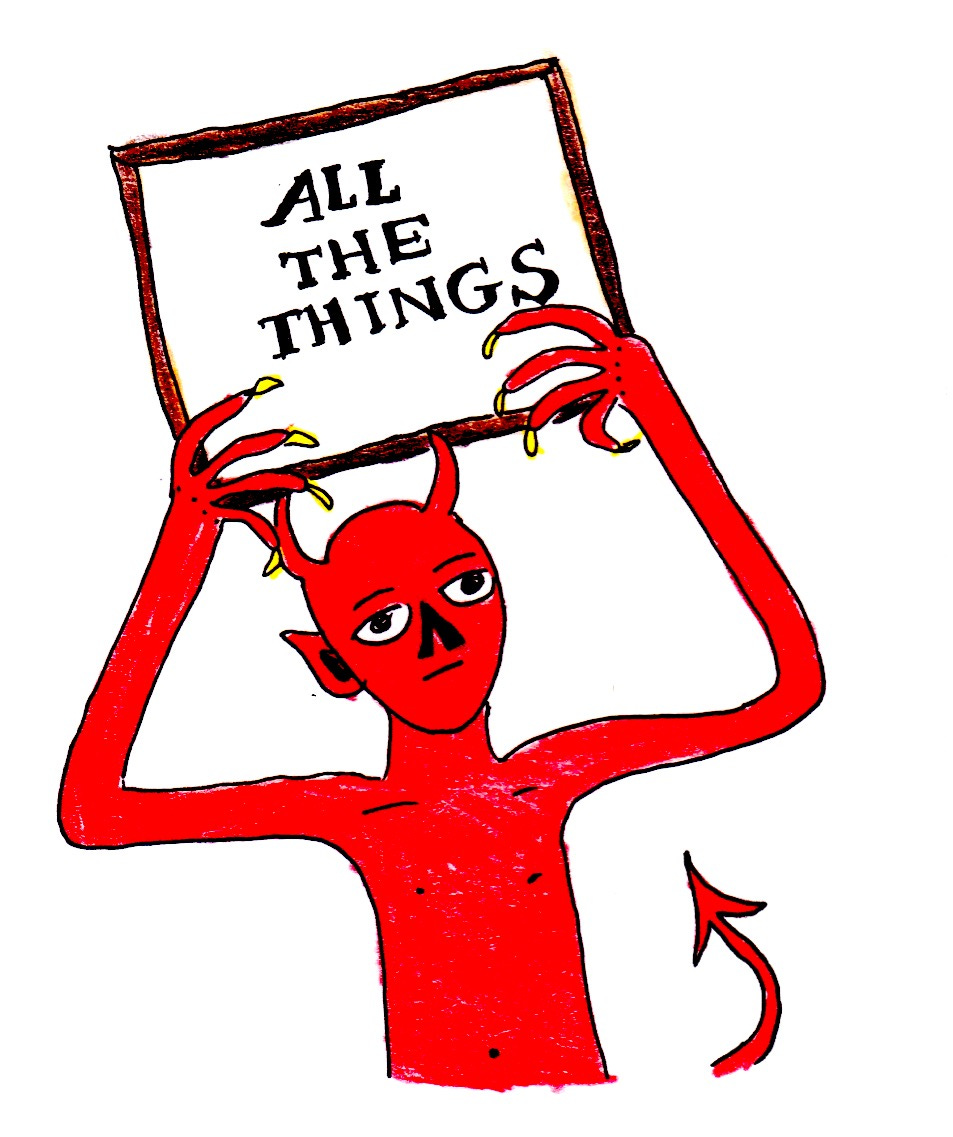
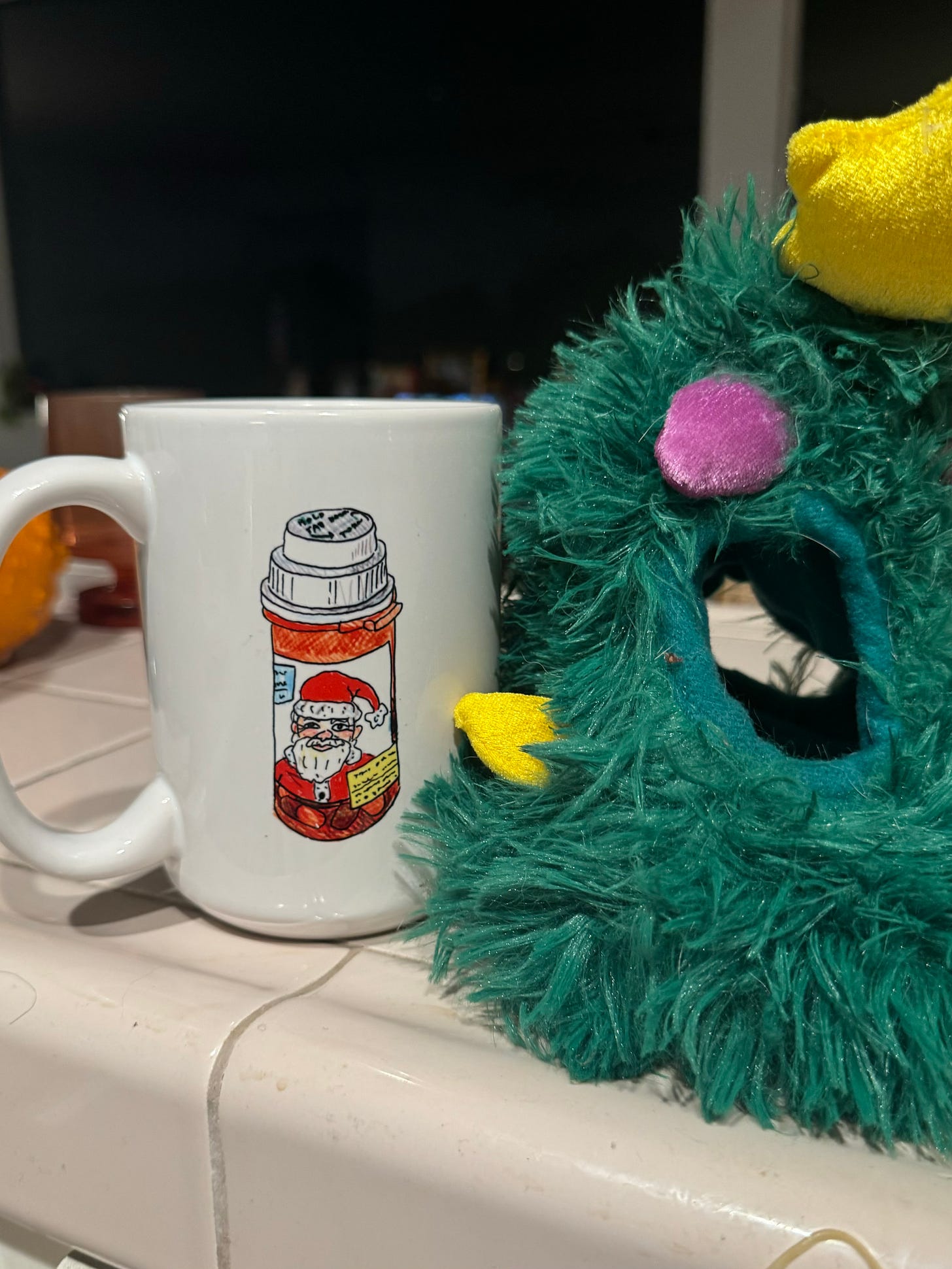
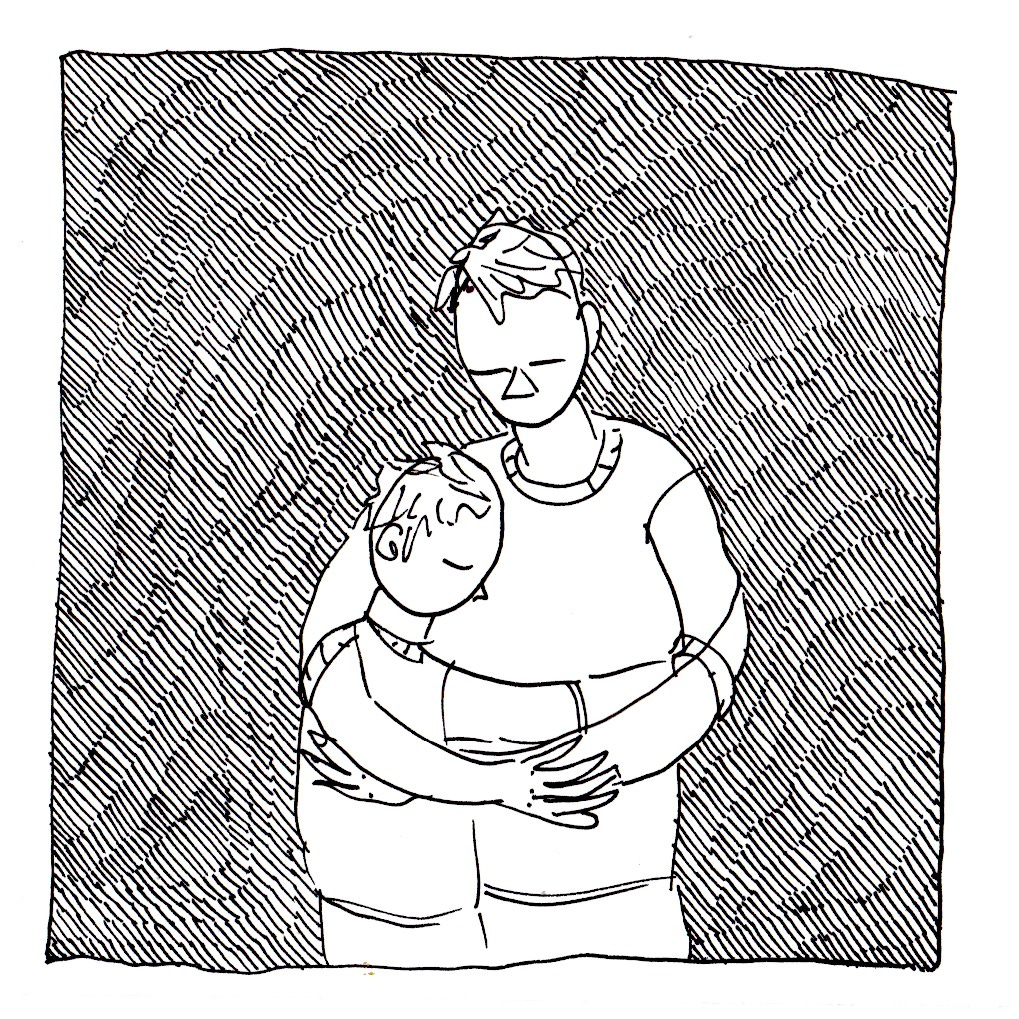

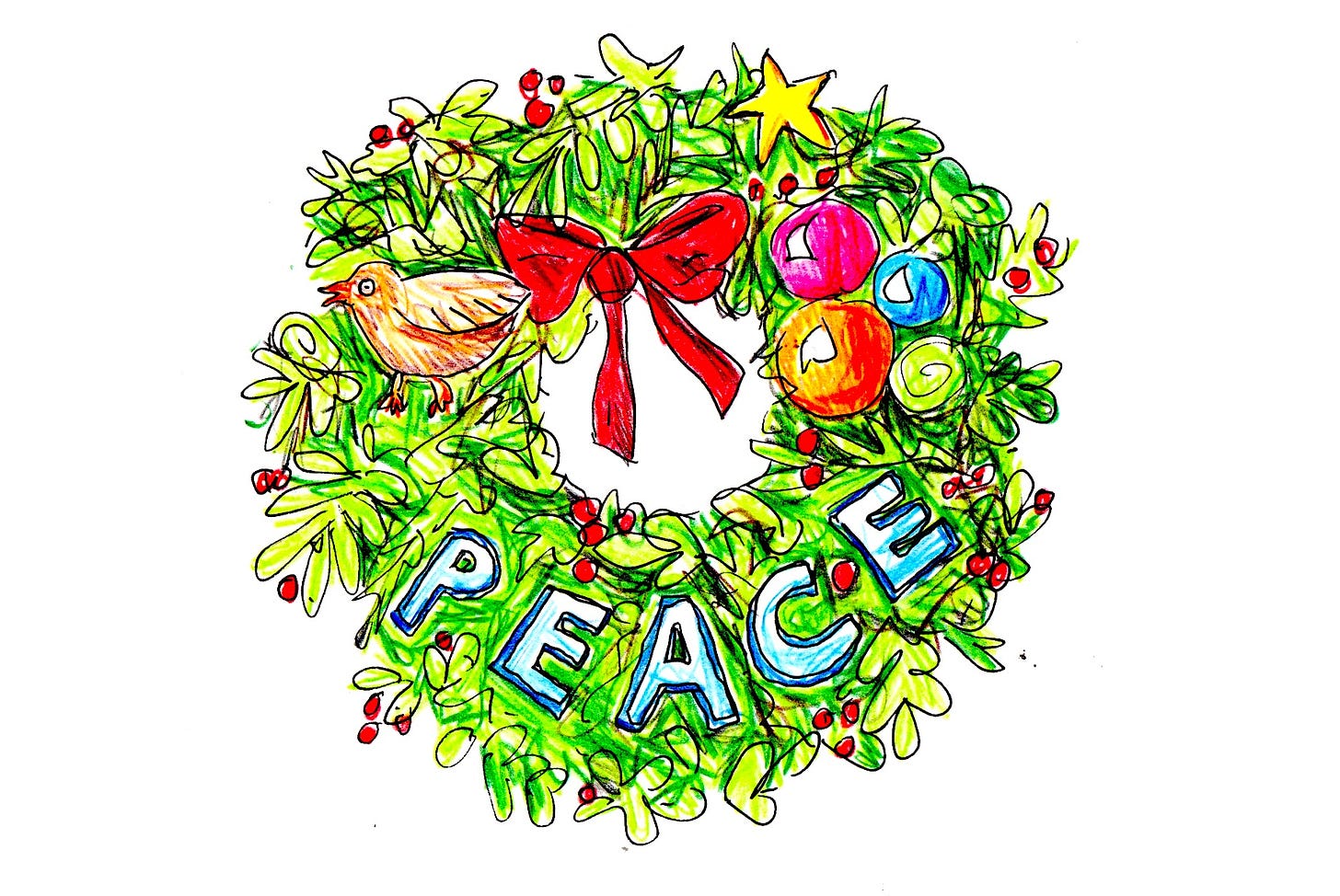
AJ thank you for sharing this beautiful story and video of your father. There is so much love there. As someone who shares a similar family history I appreciate every word and decided long ago to forgive my Dad for doing the best he could. Still hoping my brothers will do the same before he’s gone. ❤️
Heartbreaking and heartwarming at the same time!
I remember my mother’s stay in a center in Middletown, NY. She seemed content but barely remembered any of the 14 children she bore. Earlier in life, she always described herself as “disgustingly healthy” as she had never been in a hospital until her 70s, except for childbirth and one stillbirth. Now she was a shell of her former self.
The few times she did recognize one of us were as exciting as a birthday and Christmas rolled into one!
I had the same experiences with other residents as you did with so many thinking they knew me. Unfortunately, Mom rarely did.
Mom wouldn’t have been there except that she developed a knack for breaking out of my brother’s well secured home and wandering the streets in the middle of the night.
Rest in peace, Mom, you deserve it!